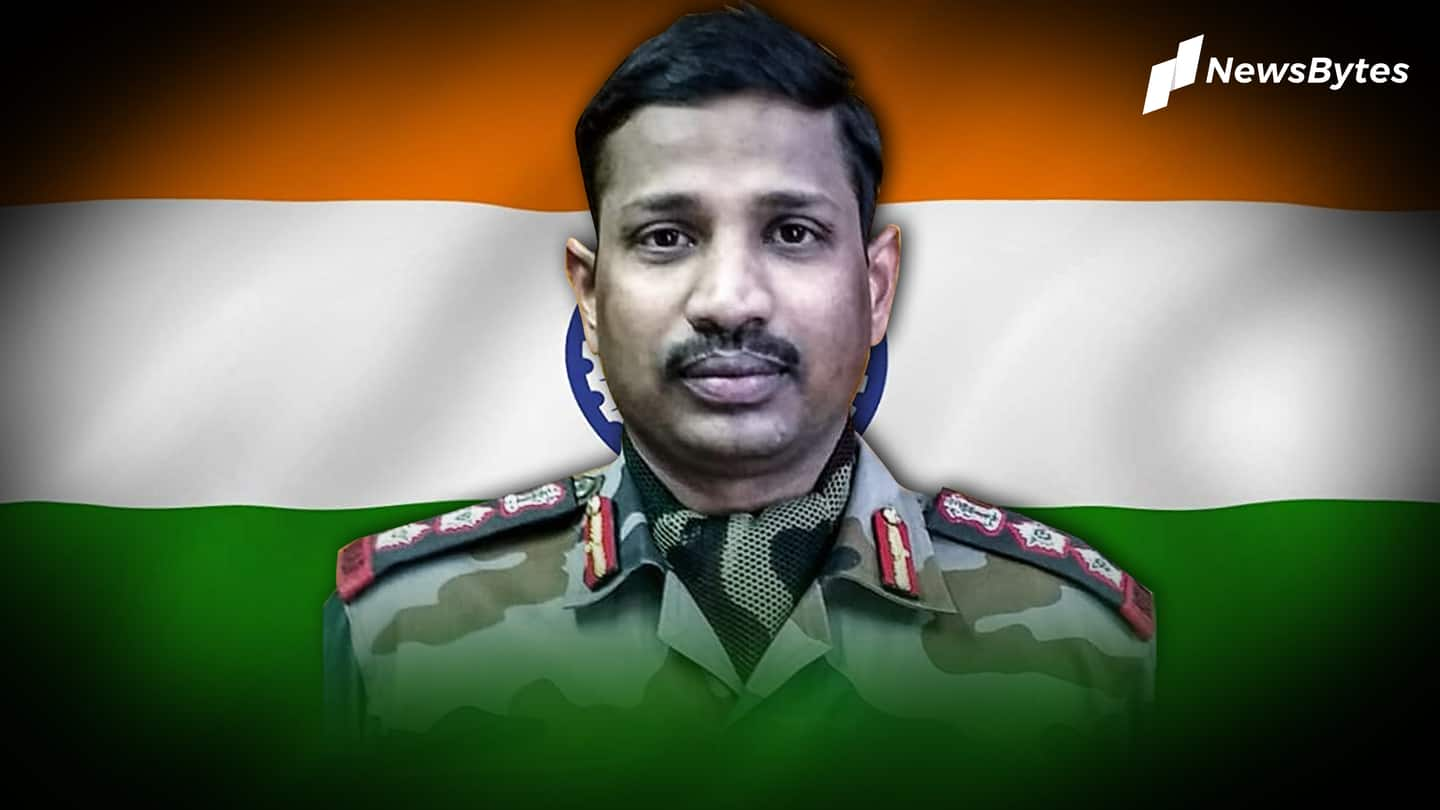
Galwan martyrs had brutal marks, nation bids a tearful goodbye
What's the story
Attacked by the Chinese in a barbaric manner at Galwan Valley, 20 Indian soldiers laid their lives, defending our territories.
Their demise shocked India, and the subsequent reports about their injures added to the trauma. The soldiers had grave injuries on their bodies and faces, confirming the fact that China used dangerous weapons.
Meanwhile, the martyrs were bid tearful goodbye by the grieving nation.
Context
An high-altitude area witnessed bloodshed after decades
Galwan Valley, a strategic location for both India and China, remained calm after the 1962 war. This high-altitude area, having sub-zero temperatures, became a contention point after China objected to India's infrastructure projects.
On June 6, during a high-level military talk, it was decided China would retreat. Instead, PLA soldiers, armed with sharp objects, attacked Indian troops.
20 were martyred and 76 suffered injuries.
Injuries
Chinese used clubs, studded with nails, carried knives, confirms autopsy
Treaties restrict both armies from using firearms during conflict, but that didn't stop China from taking to inhumane choices to hurt the soldiers.
A post-mortem conducted at Leh's SNM Hospital confirms reports that soldiers were attacked with nails-studded clubs.
An official in the know said nails were pierced and the Chinese carried knives. Some soldiers died of drowning in the cruel Galwan River.
Reasons
Soldiers died of hypothermia and asphyxiation
As many as 12 soldiers died of hypothermia (a condition where the body loses heat faster than it can produce) and asphyxiation (a condition of being deprived of oxygen).
"Around 17 soldiers had extreme violence marks on their bodies. The officers present in the hospital and Army base were directed to not click pictures of the bodies," a senior official told ET.
Details
Colonel Babu, two others died of drowning
The three soldiers, Colonel B Santhosh Babu, Havildar Palani, and Sepoy Ojha, who were the first casualties are believed to have died of drowning. The Commanding Officer of 16 Bihar Regiment didn't have marks on the body, but blunt injuries on the head.
Faces of at least three soldiers couldn't be recognized and three had slit marks on their necks.
Stand
India called the attack "premeditated", blamed China
India's consistent position is that China planned the attack, defying the conclusions reached on June 6 after a high-level meeting.
Prime Minister Narendra Modi, in his first comment on the clash, declared the soldiers died fighting and their sacrifices won't go in vain.
On diplomatic platforms too, New Delhi lodged a strong protest. China didn't confirm its number of casualties, but it's beyond 30.
Last call
Colonel's four-year-old son performed last rites
Meanwhile, across India the mood is solemn. Mortal remains of the martyrs reached their homes and were laid to rest.
Colonel Babu's last rites were performed by his four-year-old son in Suryapet, Telangana, amid chants of "Bharat Mata Ki Jai" and "Santhosh Babu Amar Rahe".
In his last conversation with wife Santoshi, the officer told her he would be busy, presumably due to "de-escalation".
Punjab
Inconsolable wife passed out; 11-year-old lit his father's pyre
All the way North in Punjab, the mortal remains of Naib Subedar Satnam Singh were consigned to flames in his village in Gurdaspur.
He is survived by wife, a 16-year-old son, a 17-year-old daughter, and parents. Seeing him, his wife and daughter collapsed.
And at Sheel village, Patiala, Naib Subedar Mandeep Singh's 11-year-old son lit the pyre.
Four soldiers from Punjab were martyred.
Details
Family of 22-year-old martyr waiting for mortal remains
For Sepoy Gurtej Singh's family in Mansa, the wait to see him for the final time has become excruciating. They have been informed his mortal remains will arrive by Friday. He was just 22 years old. His father said he was proud of the sacrifice.
Separately, the family of Sepoy Gurbinder Singh from Tolawal village was planning his wedding. He recently got engaged.
Bihar
Five bravehearts from Bihar laid lives for the nation
Five natives of Bihar were martyred in the clash. Mortal remains of all of them, along with Sepoy KK Ojha from Jharkhand, were flown.
Sepoy Chandan Kumar from Bhojpur, Sepoy Kundan Kumar from Saharasa, Sepoy Aman Kumar from Sultanpur, Sepoy Jai Kishore Singh from Vaishali and rural Patna's Havildar Suni Kumar lost their lives.
Notably, Sepoy KK Ojha had become a father recently.
Odisha
In Odisha, families are sad but proud
In Odisha, the families of Naib Subedar Nandu Ram Soren of Mayurbhanj district and Sepoy Chandrakanta Pradhan of Beorapanga village reportedly received their mortal remains on Thursday.
"I am both sad and proud. He has sacrificed his life in a bid to protect the nation," Pradhan's father said.
And Soren's family dreaded revealing the news to his wife, saying she can't bear the loss.
West Bengal
At village of one martyr, no one cooked food
One of the youngest soldiers to attain martyrdom was 21-year-old Ankush Thakur from Himachal Pradesh.
Two soldiers from West Bengal, Sepoy Rajesh Orang and Havildar Bipul Roy, were martyred and their mortal remains were expected to arrive at their native places this morning.
Bipul hailed from Bindipara village in Alipurduar and Orang from Belgoria.
In Bipul's village, cooking was halted as a tribute.
The fallen
Chhattisgarh will name school after martyr
Jawan Ganesh Ram Kunjam from Chhattisgarh was also martyred and as a tribute, a school will be named after him.
Madhya Pradesh also lost a son, 30-year-old Deepak Singh Gaharwar, in the showdown. The grieving family was promised a government job and an ex-gratia of Rs. 1 crore.
In Tamil Nadu, Havildar K Palani was bid goodbye with full state honors.